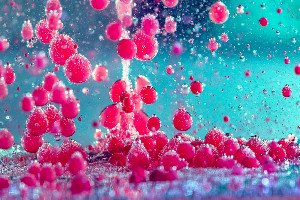Nadhira Nuraini Afifa, Wiji Lestari
Effects of probiotics supplementation on reducing inflammation in burn patients
Introduction
Effects of probiotics supplementation on reducing inflammation in burn patients. Explore how probiotics reduce inflammation in burn patients. Discover significant reductions in hs-CRP and increased IgA levels, enhancing immune function and wound healing.
Abstract
Background: Burn injuries cause significant physical trauma and complex inflammatory responses, accounting for more than 300,000 deaths per year. Probiotics may help modulate inflammation in burn patients by improving biomarkers such as hs-CRP and IgA levels. This case report aims to investigate the effect of probiotics supplementation on reducing inflammation in burn patients. Methods & Materials: A literature search was on three large databases: PubMed, Cochrane Library, and Google Scholar. MeSH terms, advanced search, and eligibility criteria were used for title and abstract screening after removing duplicates. Critical assessment tools and levels of evidence of the final articles are based on the Oxford Center for Evidence-Based Medicine. Results: Two randomized controlled trials (RCTs) met the PICO and eligibility criteria. One RCT found that probiotics supplementation significantly reduced hs-CRP levels (21.38 ± 44.45 vs 36.36 ± 79.03; p < 0.001) and improved wound healing in burn patients. The other RCT found that single and mixed strain probiotic administration significantly increased IgA levels (p < 0.001 and p = 0.025, respectively) in burn patients. Conclusions: Probiotics supplementation demonstrates significant benefits in reducing systemic inflammation and enhancing immune function. Further research is necessary to provide recommendations of probiotic use in burn care.
Review
This paper addresses a clinically significant area concerning the complex inflammatory responses in burn patients and the potential modulating role of probiotic supplementation. The stated objective is to investigate the effect of probiotics on reducing inflammation, with an interest in biomarkers such as hs-CRP and IgA levels. While the abstract initially labels the study as a "case report," the outlined methodology clearly describes a systematic literature search across major databases like PubMed, Cochrane Library, and Google Scholar, utilizing advanced search techniques and PICO criteria to identify relevant studies, which aligns more with a systematic review approach. The findings, derived from the synthesis of two identified randomized controlled trials (RCTs), suggest encouraging outcomes. One RCT reported a statistically significant reduction in hs-CRP levels (21.38 ± 44.45 vs 36.36 ± 79.03; p < 0.001) and improved wound healing, while the other demonstrated significant increases in IgA levels following both single and mixed strain probiotic administration (p < 0.001 and p = 0.025, respectively). These results support the authors' overarching conclusion regarding the potential benefits of probiotics in modulating systemic inflammation and enhancing immune function in this vulnerable patient population. However, a fundamental methodological inconsistency is the labeling of this study as a "case report" when its execution is undeniably that of a literature review synthesizing evidence from multiple external RCTs. This mischaracterization needs to be addressed. Furthermore, while the positive findings are noted, the reliance on only two RCTs, without further detail on the specific probiotic strains, dosages, patient characteristics, or duration of intervention within the abstract, inherently limits the generalizability and robustness of the conclusions. Therefore, the call for further research is not only valid but critical, urging for more comprehensive systematic reviews or meta-analyses and additional large-scale RCTs to provide more definitive and actionable recommendations for probiotic use in burn care.
Full Text
You need to be logged in to view the full text and Download file of this article - Effects of probiotics supplementation on reducing inflammation in burn patients from World Nutrition Journal .
Login to View Full Text And DownloadComments
You need to be logged in to post a comment.
Top Blogs by Rating
The Invisible Architects: Are...
By Sciaria
The Elusive Self: Is Authentic...
By Sciaria
The Ageless Enigma: What Biolo...
By Sciaria
Favorite Blog
Mycorrhizal Networks: Unearthi...
By Sciaria
Is Electro Music the New Class...
By Sciaria
The Ageless Enigma: What Biolo...
By Sciaria




